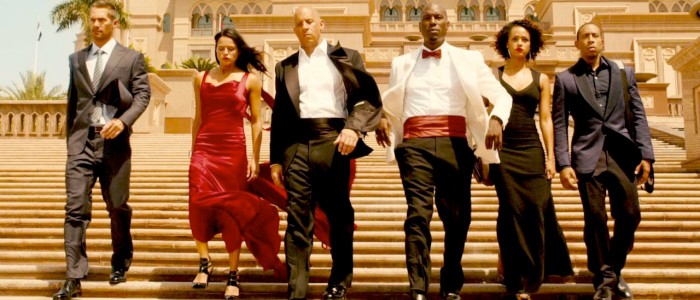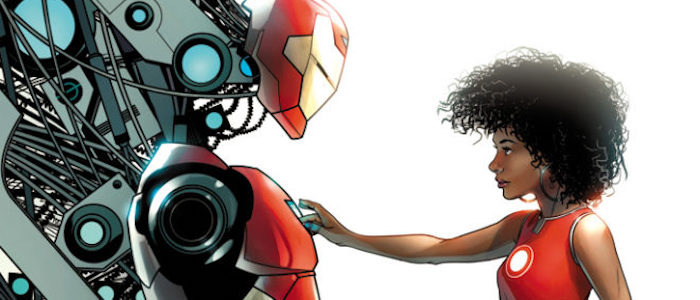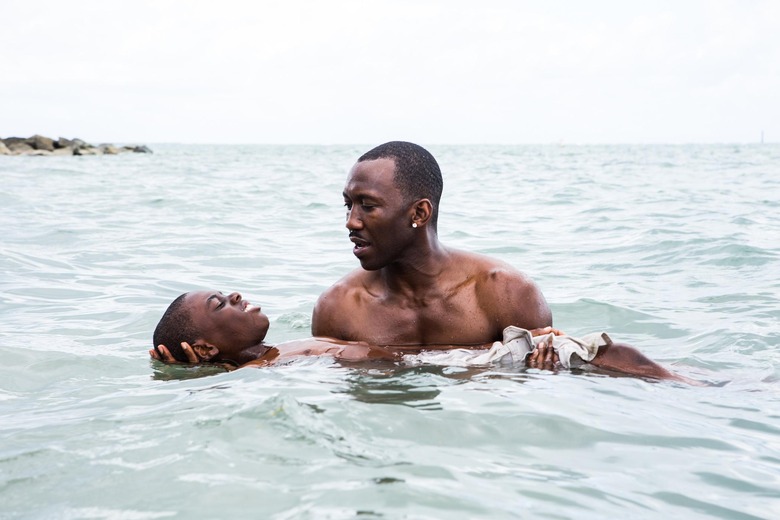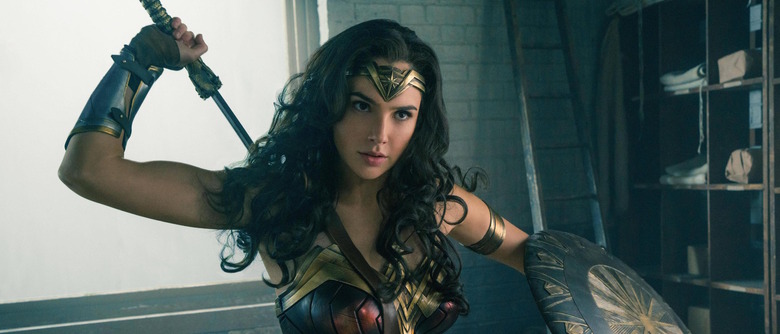Why Diversity In Film Matters More Than Ever
In the wake of this shocking election and in the face of massive uncertainty, the question of diversity in movies may seem trivial. What does it matter what race a new comic book hero or action star is when the next president is taking advice from a proud white nationalist? Who cares whether female characters are well written when the incoming Republican government is drooling over the opportunity to gut Roe v. Wade?
The answer is it still matters. It may matter now more than ever.
Think back to last week, when Hollywood lived up to its reputation as a liberal haven by largely recoiling in disgust and disappointment at the results of the election. All those high-profile endorsements and impassioned speeches and viral videos — none of them made a difference, or at least not enough of a difference. In the end, so many of their devoted fans voted for Trump.
But Hollywood's real power has never resided in celebrity soapboxing. It's been the ability to shape what audiences think the world looks like, and what we think the world should look like. (Remember the time current Vice President Joe Biden credited Will & Grace for changing public opinion on gay rights?) Art has the unique ability to instill empathy across barriers like race, class, geography, gender, sexual orientation, and creed. It can uplift, it can instruct, it can entertain, it can distract. Hollywood now has the chance to wield that power like a battering ram or a Trojan horse.
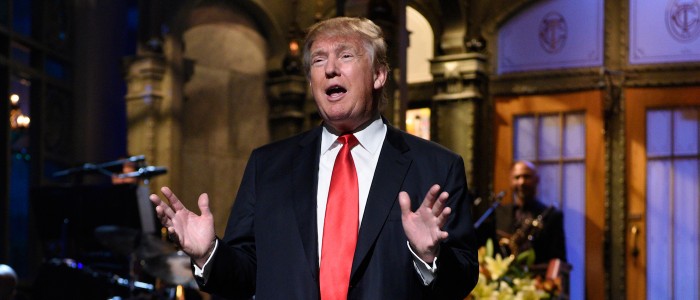
Trump may try to normalize racism, misogyny, homophobia, and other forms of vile bigotry. They've already started. The KKK has gone from an obscure extremist group to a driving force in American politics. Questions of whether we should build a wall to keep out Mexicans or enforce a ban to keep out Muslims have gone from fringe ideas to actual debates. Many both within and without his circle will help with this process of normalizing Trump and his stances. Indeed, they've already started, with news headlines that downplay his white supremacist ties and glossy magazine covers that try to frame Trump in a more forgiving light.
And in turn, normalizing Trump will mean dismissing and marginalizing the groups he's targeted. After all, if Trump's stated policy proposals are within the bounds of reason, then so, too, must be his views of women, of Muslims, of blacks, of every other group he's thrown under the bus on his way to the White House.
Don't let that happen.
What Filmmakers Can Do
If you're a filmmaker, tell our stories. Seek out POC actors, LGBTQ screenwriters, female directors. Work with them. Promote them. Consider making your romantic subplot a gay one. Think about making your lead Muslim. Try harder to fill out your casts, from first-billed to unnamed extras, with actors of all races and genders. Ask yourself why your medieval fantasy epic can't feature characters of color.
Take a cue from J.J. Abrams or Samantha Bee, both of whom have made concentrated efforts to surround themselves with diverse casts and crews. Don't just look to female or POC or gay directors when you've got female or POC or gay lead characters. Look hard for a woman director when it's time to make your next big-budget space opera, even if your central hero is a man. (Here's a list of some to consider.) Court black screenwriters to work on your next live-action fairy tale fantasy. Don't be afraid if the people you hire don't remind you of yourself, or if the stories they come up with aren't instantly familiar to you. Welcome the opportunity to see the world from a different perspective. It will make you a better storyteller — more empathetic, more original, more interesting.
Once you've got your wonderfully inclusive cast and crew in place, tell stories that serve a purpose. They don't have to be explicitly political to be useful. Trump has told and will probably continue to tell Americans that Mexicans are rapists and Muslims are terrorists and people with disabilities are jokes. Spin an opposing narrative.
Make movies like Zootopia, that give families an approachable way to discuss racism. Make movies like Mad Max: Fury Road, that inspire men and women to work together for a better future. Make movies like Furious 7, that offer escapist entertainment in the form of a gloriously multicultural cast of jet-setting badasses. Make movies like Creed, that put black American culture front and center with no apologies. Make movies like Moana, that celebrate non-white cultures. Make movies like Star Wars: The Force Awakens, that casually show a woman and a black man as the new heroes of the new rebellion.
Don't look to the past and make biopics about the same old white men, or adapt the same old white superheroes. Look for the stories that haven't been told: the Moonlights, the Straight Outta Comptons. Go further. Go bigger. Bring more gay characters into Harry Potter. Introduce Ms. Marvel into the Marvel Cinematic Universe.
Why Movies Matter Right Now
Do all this so people will remember that we — those of us who are non-white or non-male, those of us who fit under the LGBTQ umbrella, those of us who are Muslim or Jewish or belong to any other persecuted group — are human. Do this until everyone in America learns how to empathize with everyone who got screwed by Trump, and then keep doing it so people won't forget. Remember that for some people, film and TV could represent the best or even only opportunities they have to "meet" folks outside their homogenous communities. See us. Think about us. Normalize us.
And not just as a mission to change hearts and minds. At a time when a significant proportion of America has voted to condone blatant bigotry, or at the very least have decided they are perfectly fine with letting someone else get away with it, it would mean the world to a black girl to see a superheroine like herself onscreen, or a trans kid to see someone like himself be the Chosen One. Those Trump and his friends are most determined to stamp out, are the ones who could most use a morale booster right now.
In the days that followed Trump's election, I cried every time I saw someone say "rebellions are built on hope" or "forward, always." It was the catharsis I needed, and a reminder that there would be work to be done. It made me sad to realize America had rejected the kind of people depicted in Rogue One and Luke Cage — women, people of color – but it gave me strength to remember we'd fought through worse to get here in the first place. I don't think I'm alone. I suspect we'll need much more inspiration and encouragement as we get further into the fight.
What Audiences and Critics Can Do
The responsibility doesn't stop at filmmakers, of course.
Audiences: demand these movies. Buy tickets to these movies. Bring your friends. Engage in conversation. Vote with your dollars. Don't stop asking questions. Don't be scared to try out movies you think aren't "for you." Do your best to keep an open mind and enjoy them anyway.
Critics: see those movies. Review those movies. Talk about those movies. Look for non-white, non-straight, non-cis, non-male perspectives to hire and promote. I do not excuse myself here. I made some effort to boost these perspectives and have these discussions. I could have done more.
The safe choice is to continue spreading stories about straight white men, I know that. Especially at a time when so much of the population has made it very clear that they're not much into diversity. Other kinds of leads are still seen as uncertain and unusual — and fairly or not, that means the non-white or non-male or non-straight, etc. hero gets blamed if their movie flops. But the movie business has always been about the management of risk. If there's anything this summer has taught us, it's that not even sure-bet follow-ups to massively popular franchises with A-list leads are really "sure bets." Do the math and figure out what you are able to risk, and then spend that risk on something that counts. Don't settle for making just another popcorn movie if you can make a popcorn movie that makes a statement.
A Call to Action
None of these movies will singlehandedly change the world, just as no single vote is likely to flip an election. But bit by bit, they'll normalize the idea of a more inclusive America. If this sounds like I've got an agenda, you're goddamn right I've got an agenda. I don't want to be erased, forgotten, dehumanized, marginalized, dismissed. I don't want this for myself and I don't want this for other women, other POC, or anyone else who doesn't fit into Trump's vision of a "great" America.
It's true none of this advice is necessarily much different from anything I'd have said two weeks or six months or eight years ago. I've been banging the drum for diversity for a long time now, and I've never made a secret of it. But it's more urgent now than ever. I don't love the idea that the next four years will be great for art, because it glorifies suffering and suggests that those struggling most should be the ones to bear the burden of entertaining others. But many of us are going to be suffering either way, either because we're directly targeted by Trump and his ilk or because we're devastated for our fellow citizens who are. So make the best of it. Let that rage and sorrow feed our art. Let our art be a way to fight back.

